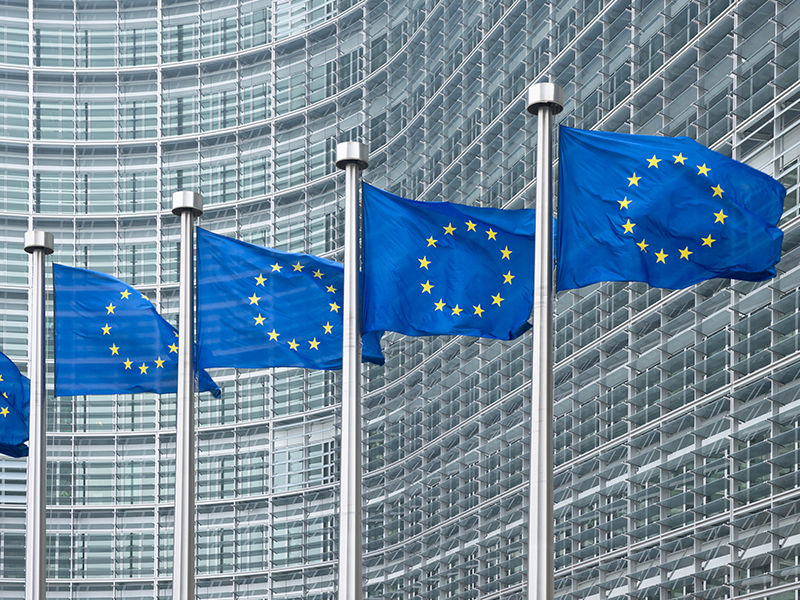Food labelling rules in the EU are full of holes, allowing brands to greenwash and confuse consumers with seemingly contradictory health claims, according to a new report by the European Court of Auditors (ECA).
Labelling laws ensure information about the content and properties of food is provided. However, they are also often used to make products more attractive by emphasising supposed benefits, such as being healthy, environmentally-friendly, or gluten-free. This provides a confusing mix of messages for shoppers to deal with, said the auditors. The ECA also found problems with checks and penalties.
“Instead of bringing clarity, food labels too often create confusion; there are hundreds of different schemes, logos and claims that people need to decipher”, said Keit Pentus-Rosimannus, the member of the European Court of Auditors responsible for the audit. “Companies can be very creative in what they put on packaging, and EU rules have not caught up with a constantly evolving market, leaving some 450 million European consumers vulnerable to intentionally or unintentionally misleading messages,” she added.
The ECA also had a go at the European Commission for falling way behind on its schedule to update certain rules, including the2011 Food Information to Consumers (FIC) Regulation. The European Commission should have taken action on 11 topics across the FIC and the 2006 claims regulation, but has only managed to achieve four of them.
One of the failures relates to front-of-pack nutrition labelling, which should have been completed by 2017. Debate has raged over which system to use. Nutri-Score seemed to be the most popular but an agreement has been hard to find.
Many companies have supported the system. However Danone has just removed Nutri-Score from all products following an algorithm update that gives some of its sweetened drinks a worse score. “We expected better from a company like Danone, which until recently campaigned to make Nutri-Score mandatory in Europe until the update (quite rightly) affected some of its flagship products,” Serge Hercberg, professor of nutrition at Université Paris, who led the team of researchers that created NutriScore, toldIngredients Network recently.
NGOs said the European Commission must accelerate its work on a mandatory scheme for front-of-pack labels. “The Commission needs to either propose Nutri-Score as the harmonised and mandatory label across the EU or clear the way and enable member states to introduce a mandatory Nutri-Score on the national level”, said Suzy Sumner, head of the Brussels Office for Foodwatch International.
The ECA also noted that consumers are increasingly exposed to non-regulated health claims about plant substances or “botanicals” (such as ‘contributes to energy recovery’ or ‘improves physical performance’), even when this is not supported by scientific evidence.
Meanwhile, people with food allergies may be faced with “over-cautious” allergen labelling and vague statements such as ‘may contain’, which restricts their choice of products. Vegetarians and vegans are particularly affected: the use of vegan and vegetarian labelling is not regulated, as there is no EU-wide definition of such products.
The confusion is made worse by the increasing number of voluntary labels, logos and claims that are used to attract consumers. These include ‘clean’ labels about the absence of certain elements (like ‘antibiotic-free’) and uncertified qualities (such as ‘fresh’ and ‘natural’), but also a wide range of environmental claims – which are tantamount to greenwashing. Current EU rules are “regrettably unable to prevent such practices”, noted the auditors, though new rules through the green claims directive and empowering consumers for the green transition directive are on the way.
Checks generally work well for mandatory elements of food labelling. By contrast, there are few or no checks on voluntary information – such as nutrition and health claims – or online food sales (which have boomed since the pandemic), where websites outside the EU are almost impossible to check.
DWF lawyer Dominic Watkins said it is noteworthy that again this report shines a light on online retail as a blindspot for regulators. However, on the ECA’s claims about businesses misleading or confusing shoppers he pointed to member states, which have “ample legal mechanics by which to regulate misleading information. This is a question of them using the powers they have and they don’t need more law to determine what is natural or if a product can show a banana on its packaging or not.”















Leave a Reply